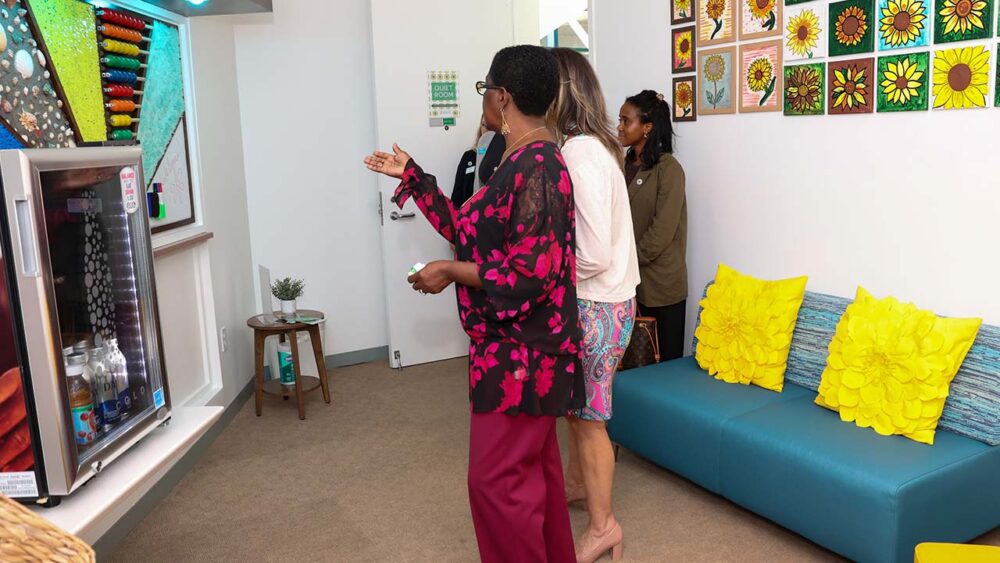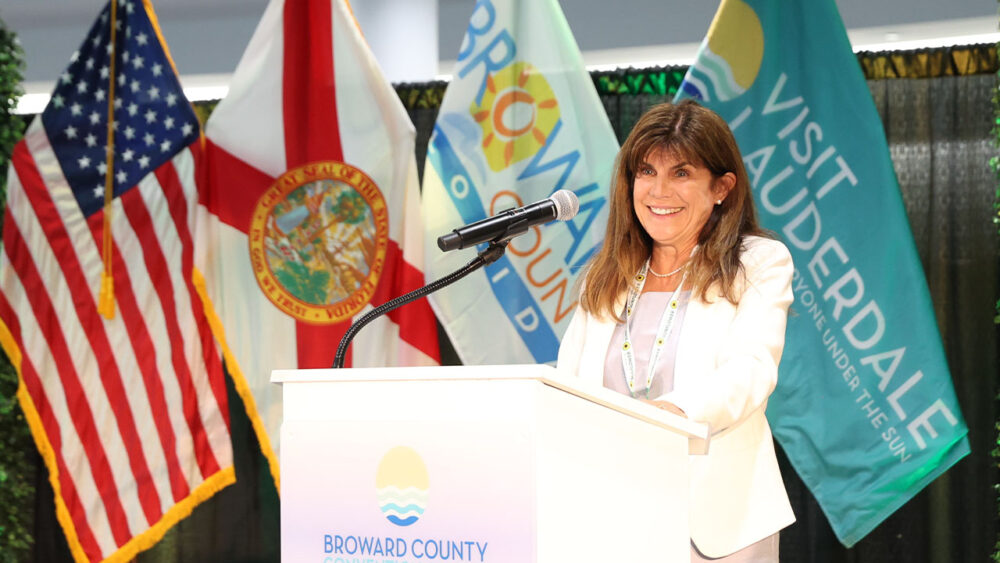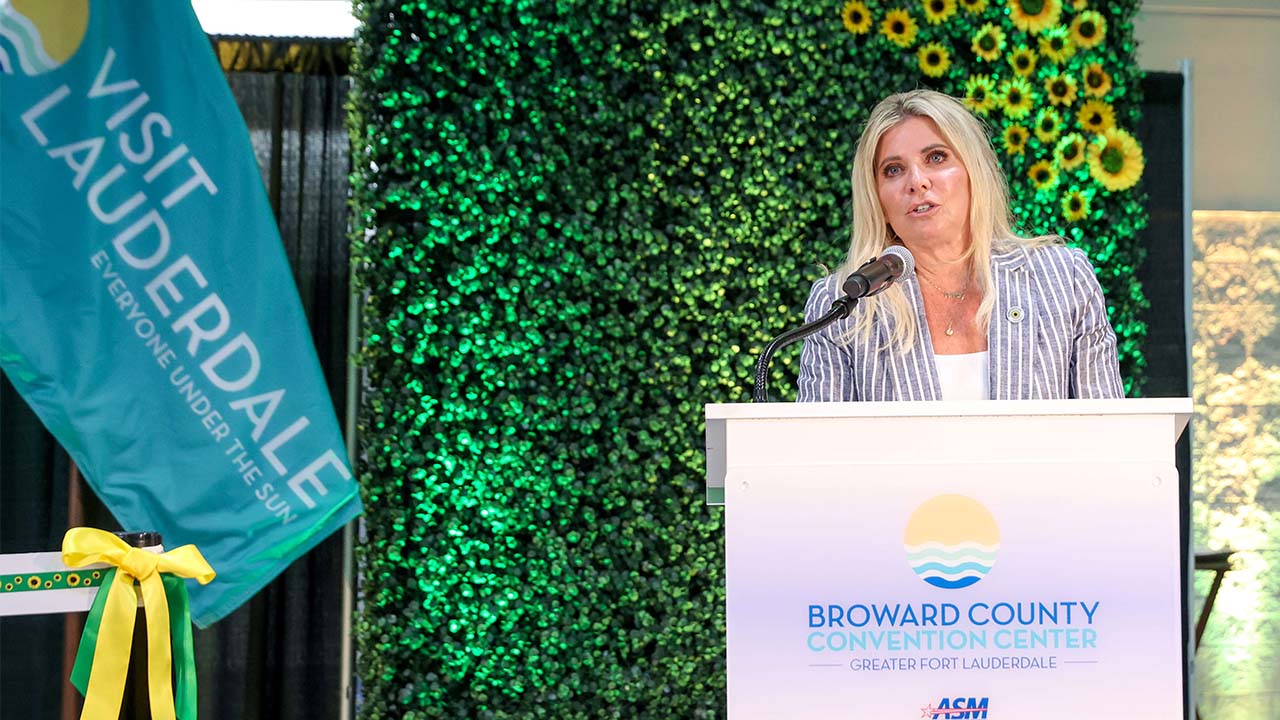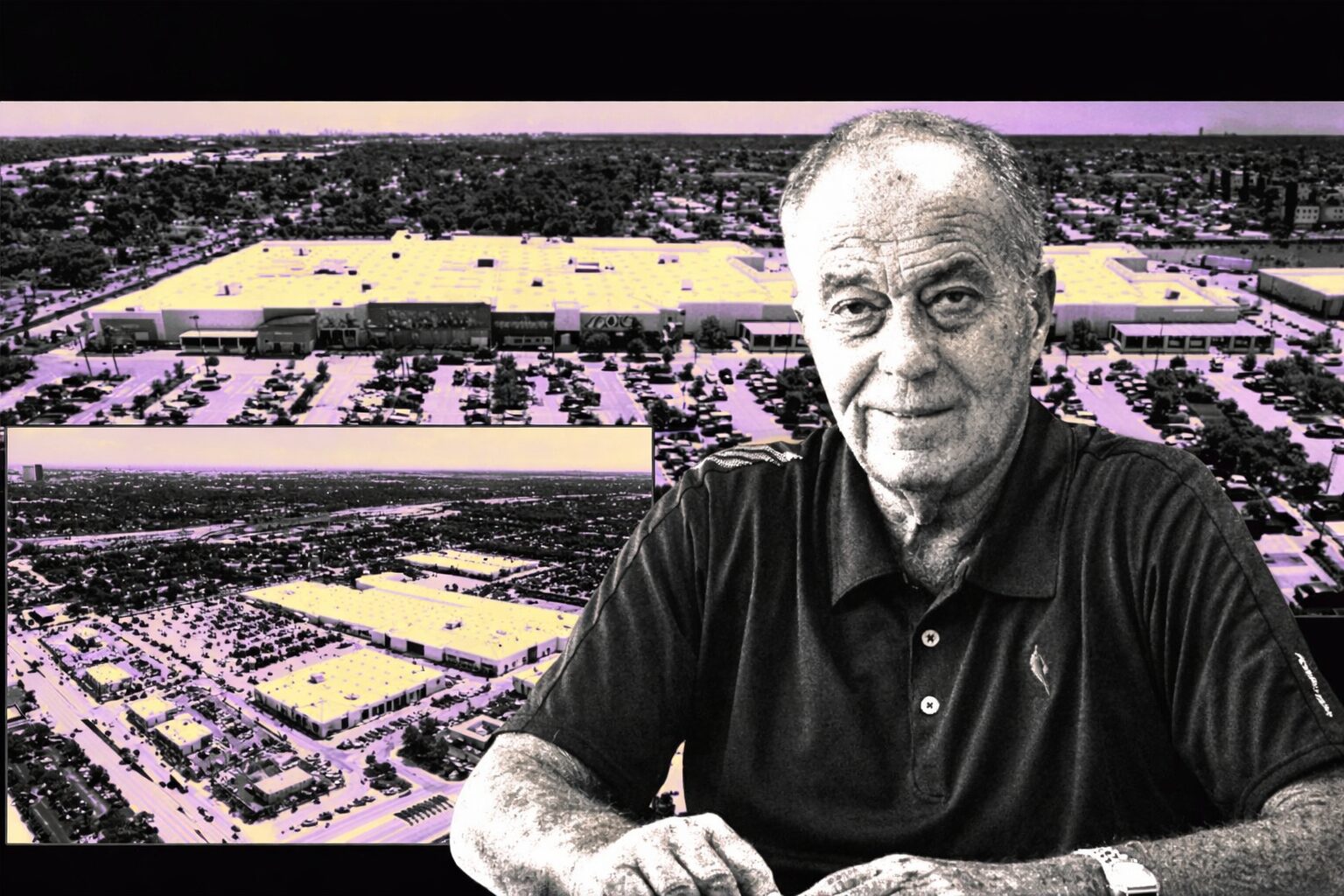Cheerful-looking sunflowers are signs of a blooming program to help those with non-visible disabilities. Visit Lauderdale, the county’s destination marketing organization, had a ribbon cutting on Monday, April 29, to celebrate an expanded partnership with the Hidden Disabilities Sunflower program. The Broward County Convention Center is now the first convention center in North America to adopt the program.
The sunflower has become an internationally recognized symbol for raising awareness for people with hidden disabilities. As part of the program, the sunflower is displayed on lanyards, name badges, pins, wristbands, or a retractable sunflower ID card holder to let staff know that additional traveling support is needed.
The Hidden Disabilities Sunflower is a simple tool for people with non-visible disabilities to voluntarily share that they may need extra assistance while traveling. Hidden disabilities can range from temporary cognitive conditions to physical, visual, sensory, and processing difficulties to chronic health conditions such as arthritis and diabetes, chronic pain, and sleep disorders.
Convention center employees will receive Hidden Disabilities Sunflower training and there is now a Zen Room in the convention center to provide people with hidden disabilities and their traveling companion with the support they need.
“Visit Lauderdale is committed to providing everyone a safe and supportive environment and has long championed inclusion and accessibility tourism by removing barriers in the travel experience for everyone,” said Stacy Ritter, president and CEO of Visit Lauderdale.

According to the World Health Organization, 15 percent of the world’s population has some sort of disability.
“Accessible tourism allows all people to participate in and enjoy vacation experiences,” said Richard Gray, senior vice president of Inclusion and Accessibility at Visit Lauderdale. “Whether they have a hidden or unhidden disability, we want them to feel acknowledged and valued when they visit Greater Fort Lauderdale. Hopefully, they will return time and time again to discover new places and have great experiences.”
“We are thrilled to welcome Greater Fort Lauderdale/Broward County Convention Center to the global Hidden Disabilities Sunflower program. They are helping to blaze a path of accessibility and inclusion for people with non-visible disabilities both locally and nationally,” said Lynn Smith, Regional Director of Hidden Disabilities Sunflower USA.

The Sunflower program has been incorporated into Visit Lauderdale’s accessible tourism marketing and has been adopted by Fort Lauderdale-Hollywood International Airport.
“Here in Greater Fort Lauderdale, our goal is to ensure hotels, restaurants, beaches, attractions and the Everglades are accessible to all people regardless of physical limitations, disabilities or age,” the accessibility page says. “We work to provide information on wheelchairs, availability of sign language interpreters, listening devices and the understanding of the autism spectrum.”
The Wheel the World section on the website provides information on accessibility at hotels and activities. The website has examples of attractions committed to providing access to all, including Amerant Bank Arena, the Bonnett House, Brightline, the Broward Center for the Performing Arts, and Cruisin’ Tikis. Details on hotels and restaurants with accessibility programs are also available.
FLL airport guests can opt into the voluntary program in advance of travel dates by requesting a lanyard or pin to be worn by both disabled persons and caretakers by emailing contactfll@broward.org (suggested at least two weeks in advance).
For more information on the Hidden Disabilities Sunflower Program, visit HDSunflower.com.














